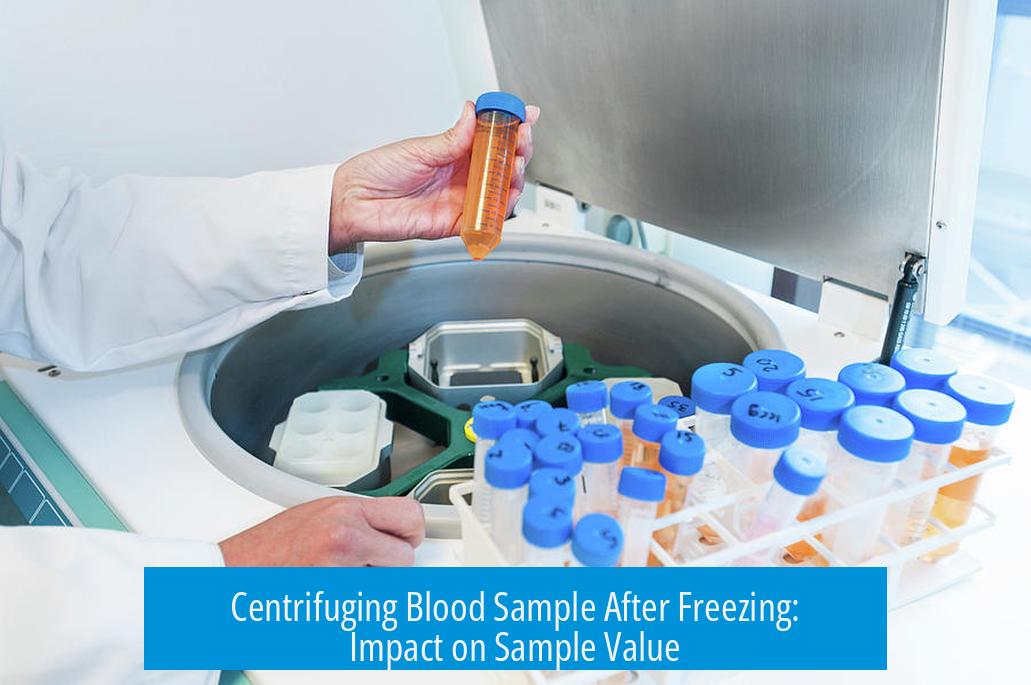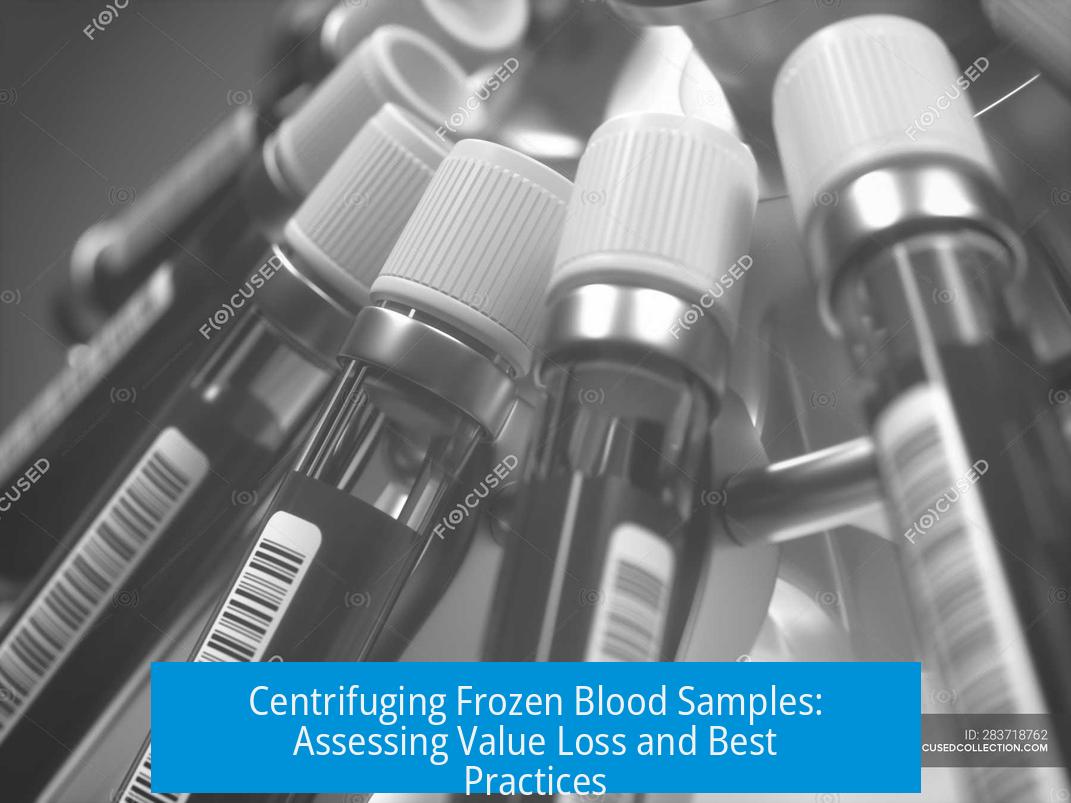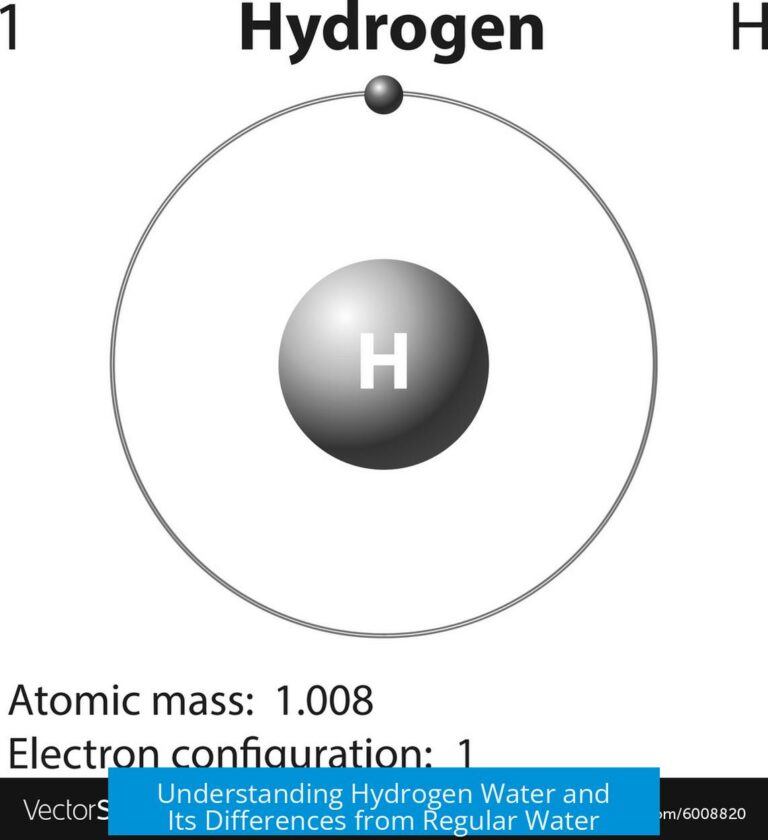Centrifuging Blood Sample After Freezing: Impact on Sample Value

Freezing whole blood before centrifugation generally causes loss of sample value, primarily through red blood cell (RBC) damage and hemolysis. This degradation impairs DNA quality and interferes with downstream molecular analyses such as PCR and Sanger sequencing.
Why Freezing Whole Blood Before Centrifugation Is Problematic
Whole blood contains various cell types, including RBCs, white blood cells (WBCs), and platelets suspended in plasma. RBCs are particularly sensitive to freezing. When whole blood freezes:
- RBC membranes rupture: Ice crystals form and break cellular membranes.
- Hemolysis occurs: Free hemoglobin and cellular contents are released into plasma.
- Sample becomes unsuitable: Hemolyzed blood inhibits enzymatic reactions such as PCR, reducing assay reliability.
Destroying RBCs not only affects red cell analyses but also alters plasma composition, which can skew biochemical measurements.
The Advantage of Centrifugation Prior to Freezing
To avoid these issues, temperaturesensitive components should be separated before freezing. Centrifugation accomplishes this by:
- Separating plasma or serum from cellular components.
- Allowing extraction of the buffy coat layer, rich in WBCs, where DNA resides.
Frozen plasma or serum preserves its constituents better and maintains assay integrity. Likewise, isolating WBCs concentrates DNA for molecular tests.
Sample Handling for Optimizing DNA Quality
DNA quality in blood samples depends strongly on collection and processing methods. Key considerations include:
- Use of anticoagulants: Blood drawn into tubes with EDTA prevents clotting and preserves cells.
- Buffy coat preparation: A targeted centrifugation step separates WBCs before freezing.
- Cool storage: Keeping samples refrigerated around 4°C maintains DNA stability better than freezing whole blood.
Using EDTA tubes and isolating WBCs enables higher yield and intact DNA extraction, essential for molecular diagnostics.
Impact of Centrifugation Conditions After Freezing
When blood samples have already been frozen whole, centrifugation is less effective and can yield degraded material.
- Centrifugation speed and duration: Important variables that influence pellet quality.
- Type of centrifuge: Proper equipment enhances consistent separation after thawing.
- Post-freeze sample integrity: Hemolyzed and lysed cells produce poor separation and contaminated fractions.
Adjusting centrifuge parameters alone cannot fully recover sample quality lost by freezing before processing.
Suitability of Frozen Blood for Various Molecular Tests
Despite challenges, some molecular applications tolerate frozen blood:
- An example is PCR detection of specific point mutations requiring minimal DNA input.
- Repeated freeze-thaw cycles may degrade DNA but often do not prevent successful PCR amplification if residual intact DNA remains.
- Animal tissue studies often freeze samples before DNA extraction, sometimes with acceptable yields despite degradation.
Nonetheless, freezing whole blood without prior processing remains suboptimal for reliable genetic testing.
Best Practices for Blood Sample Handling
To maximize sample value and assay reliability:
| Step | Recommendation |
|---|---|
| Collection | Use EDTA tubes to prevent coagulation and preserve nucleated cells. |
| Processing | Perform centrifugation promptly to separate plasma and buffy coat. |
| Storage | Prefer refrigeration at ~4°C over freezing when immediate processing is possible. |
| Freezing | Freeze plasma, serum, or isolated WBC fractions, not whole blood, if storage >3 days is required. |
| DNA Extraction | Isolate DNA from buffy coat or whole blood soon after centrifugation for best results. |
Summary of Findings
- Freezing whole blood before centrifugation causes RBC lysis and hemolysis, compromising sample integrity.
- This damage inhibits molecular tests like PCR and Sanger sequencing due to DNA degradation and sample contamination.
- Centrifuging blood first to separate plasma and buffy coat preserves sample components for freezing.
- Using anticoagulants such as EDTA and quick processing enhances preservation of nucleated cells and DNA quality.
- Proper centrifugation parameters after freezing depend on equipment but cannot fully restore pre-freeze quality.
- Frozen samples may still perform in PCR-based assays requiring minimal DNA, but overall quality is reduced.
- Refrigerated storage and prompt processing within 1-3 days generally yield superior DNA integrity compared to freezing whole blood.





Leave a Comment